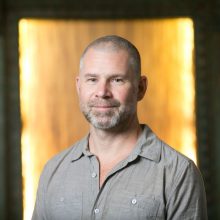I often recall a time many years ago when my grandmother was dying. I was with her during her final days, and sat at the foot of her bed during her last few breaths. A turning point in my life, the death of my grandmother signaled something within me that encouraged and supported my interest in meditation and Buddhist teachings. Referred to in the Pali as samvega, this desire to be awake to life clarifies and heightens our motivation and aspiration to seek greater meaning and freedom in all that we do.
We don’t need loss or tragedy to connect with the wholesome part of us that seeks wisdom and the alleviation of suffering, we only need to learn how to see the impermanence (anicca) and preciousness of this human life. Meditation practice is the training ground for recognizing impermanence: the abdomen rises and then falls, sounds appear and disappear, moods come and go in the changing emotional landscape of pleasant and unpleasant experience. And then there is the rest of our life–as we attune to the truth of impermanence the very preciousness of life itself begins to penetrate our awareness: the flowers will not last forever, our dear friends will come and go, those we love will grow old. Even how we chop our vegetables matters if we wan’t to be touched by the the richness and joy of a human life.
In the absence of samvega we are more prone to play out our usual habits and less prone to orient our life toward wisdom. The Buddha referred to this as pamada, describing any phase on our path where delusion has tricked us into thinking satisfaction can be had through material and sensual gain. We strive, we push, we rush, and we suffer the result of disconnection, alienation, and suffering (dukkha).
I invite you to join me for an exploration of samvega and pamada with an emphasis on cultivating confidence in the Dhamma, the knowledge that the Buddha’s subtle teachings are accessible and that the fruit of practice is available to us in this life time. Known as pasada, this confidence, which is both a trust in the Dhamma and in one’s own capacity for freedom, can be recognized in the knowledge that we have everything we need to be awake and that the Dhamma is inherently reliable.

